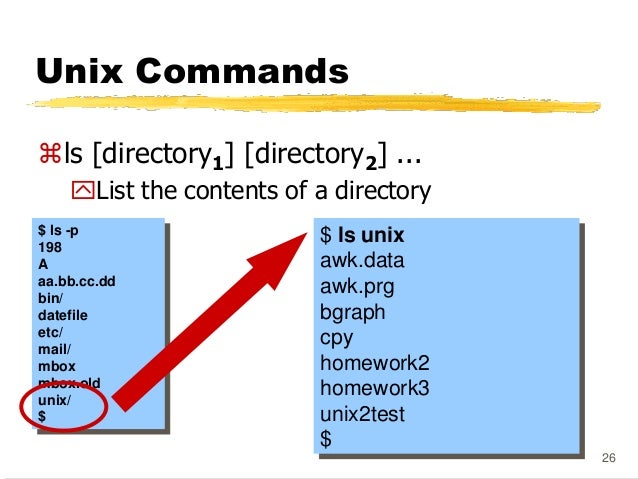Solaris Version Command
Solaris Version Command Unix
May 31, 2007 What is the command to find the solaris version? Through network management tool I am able to see it as 2.10, but with uname, showrev it show 5.1(revision). To see the version of Oracle Solaris software that is running on your system, type either of the following commands. $ uname -a The cat command provides more detailed information. $ cat /etc/release. Hi all, a stupid question about a command to check the Solaris Version, I'm working on Solaris 10 and I need to check that the Version is ' 10 ' with a UNIX command. I just used ' uname -a ' command but I had this result: SunOS dev510 5.10 Generic118833-36 sun4u sparc SUNW,Ultra-4 so. I know uname -a or /proc/version Is any other command to know the Linux version???? When we telnet to any of the Linux server, the version shows very clearly like Red Hat Enterprise Linux ES release 3 (Taroon. (1 Reply) Discussion started by: bachegowda. 5.11 In this example, the version shown is Oracle Solaris 11 (5.11). If necessary, refer to your operating system documentation for information about upgrading the operating system. How to Find the Version of the Solaris OS That Your System Is Running To see the version of Solaris software that is running on your system, type either of the following commands. $ uname -a The cat command provides more detailed information.
Is there a way to determine what version (distribution & kernel version, I suppose) of Linux is running (from the command-line), that works on any Linux system?
Breakthrough9 Answers
The kernel is universally detected with uname:
There really isn't a cross-distribution way to determine what distribution and version you're on. There have been attempts to make this consistent, but ultimately it varies, unfortunately. LSB tools provide this information, but ironically aren't installed by default everywhere. Example on an Ubuntu 9.04 system with the lsb-release package installed:
Otherwise, the closest widely-available method is checking /etc/something-release files. These exist on most of the common platforms, and on their derivatives (i.e., Red Hat and CentOS).
Here are some examples.
Ubuntu has /etc/lsb-release:
But Debian has /etc/debian_version:
Fedora, Red Hat and CentOS have:
Gentoo:
Calibri light font mac. Oct 24, 2011 Calibri font available in ttf format for you to download. FontPalace.com offers largest database of free fonts.
I don't have a SUSE system available at the moment, but I believe it is /etc/SuSE-release.
Slackware has /etc/slackware-release and/or /etc/slackware-version.
Mandriva has /etc/mandriva-release.
For most of the popular distributions then,
will most often work. Stripped down and barebones 'server' installations might not have the 'release' package for the distribution installed.
Mar 18, 2015 Play Ride: Game Demo Install Demo. About This Game Are you ready to put yourself to the test? Select one of the three available bikes and hurtle along the compelling Sierra Nevada track in Quick Race mode. Much more awaits you in the full game!. Triumph - Street Triple R. Kawasaki ZX-10R. Ride demo download. Are you ready to put yourself to the test? Select one of the three bikes and hurtle along the compelling Sierra Nevada track in Quick Race mode!
Additionally, two 3rd party programs you can use to automatically get this information are Ohai and Facter.
Note that many distributions have this kind of information in /etc/issue or /etc/motd, but some security policies and best practices indicate that these files should contain access notification banners.
Related:How to find out version of software package installed on the node?,puppet.
You could also try:
It usually (not always, though) will tell you what distribution you are using. /etc/issue is the file used for the login screen.
at a minimum for Ubuntu, Fedora and OpenSUSE.
Does not work for OS X at least until 10.9 (Mavericks). Use sw_vers instead.
OpenSUSE had cat /etc/SuSE-release up until 13.1 but is deprecated in favour of os-release.
Redhat 6.1 has cat /etc/redhat-release
cat /proc/version found me Red Hat on a shared VPS.
Kernel: uname -r
Distro: lsb_release -a
These will run on most Linux systems
This issue can also be solved using Python with the platform module:
Using platform() function:
The above command returns a single string identifying the underlying platform with as much useful information as possible.
Or using uname() function:
The above command returns a namedtuple() containing six attributes: system, node, release, version, machine, and processor.

Or using dist() function:
The last command tries to determine the name of the Linux OS distribution name, but it is deprecated since Python 3.5 and will be removed in Python 3.8.
protected by BinaryMisfitDec 20 '10 at 14:27
Thank you for your interest in this question. Because it has attracted low-quality or spam answers that had to be removed, posting an answer now requires 10 reputation on this site (the association bonus does not count).
Would you like to answer one of these unanswered questions instead?